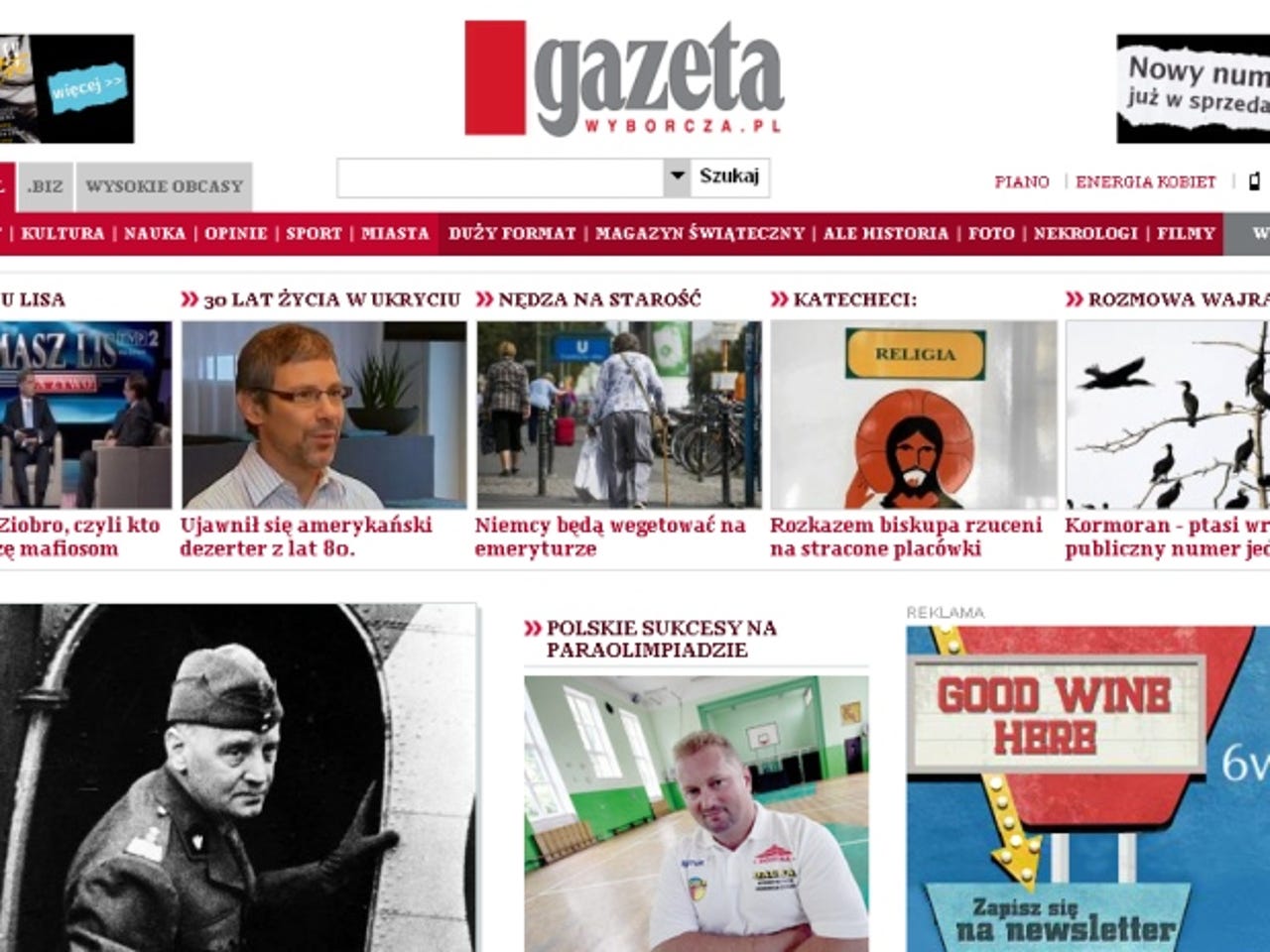Read all about it – if you have a credit card: Poland's great paywall gamble kicks off

The technology to put in place a paywall may not be new to many parts of the world, but an ambitious project to bring online payments to the media industry in Central Europe has brought its own challenges.
"It is actually harder to do something like this in Central Europe than it would be in Western Europe," Piano Media CEO and founder Tomas Bella explains. "For example, credit cards are much less common here than in the West."
Piano Media is the company behind Poland's 'great paywall', which started operating this week. The paywall ringfences premium content from 46 websites from six large publishers of print media in Poland, including the websites of the regional dailies, the largest daily newspaper Gazeta Wyborcza, Forbes Poland and Polish Public Radio.

In some ways, it's a standard paywall set-up: Piano offers a web application that appears as a bar on top of the page. After submitting their payment details and setting up an account, users can log in and view to the website's premium content.
What's not so standard is that the login is valid for all content from all the participating websites of all the participating publishers in a given country — traditionally, paywall technology shields particular articles or sections of a website, or the entire site itself. "You can compare it to a cable television subscription," Bella says. "You get access to different content from different competing sites using one login with one payment."
The login is carried over when a subscriber moves from one site to another, thanks to an API connection between the publisher's CMS and Piano's central server which remembers a user's login across multiple sites. That same API also enables visitor data, including basics like time spent on a site and navigation, to be gathered and shared with the publisher. "They get a login that gives access to data and handmade reports," Bella says.
Technology vs business
The main challenges are not technological, but lie in the business: the concept of paywalls as a whole is fairly new in eastern central Europe, where web users are used to free online content and generally sceptical of online payment and credit cards.
"You can compare it to a cable television subscription. You get access to different content from different competing sites using one login with one payment" — Tomas Bella, Piano Media
That, says Bella, means that Piano has had to be very active in reaching out to visitors and explain the payment procedure (as well as credit or debit cards, the company accepts 'fakturas', bank transfers, and payments made in person in local shops.) In Slovakia and Slovenia, where its paywalls are also rolled out, it has struck deals with mobile phone operators to facilitate payment by SMS.
"We even get people here who want to still pay cash at the post office," Bella says, referring to a practice that is still very common in the region. "They feel more comfortable doing that instead of using their credit card." Bella did not want to divulge what security measures are in place, but did mention much is left to the systems of banks.
Poland is the third and by far the largest market Piano has entered — it's already established in Slovakia and Slovenia — and will see Piano charge 20 zlotys (around €5) per month for a subscription. Piano will take 30 percent of the fee, 40 percent goes to the owner of the website where the user signed on to the Piano system, and the rest is split among all participating publishers.
"We are targeting between five and 15 percent of a publisher's users after three years," he says.
Going the way of software
He compares it to the software market in his region. "In Central and Eastern Europe, there was vast software piracy in the 1990s, but now it's not as prevalent. It still exists, but people have accepted they need to pay for software. We feel the same thing will ultimately happen for those wishing to access high-quality, premium content."
Piano is looking to expand its model to more countries, and eventually to Western Europe, where smaller countries like the Netherlands and Belgium represent a less fragmented media landscape with fewer big players who need to be persuaded to use the same system as their rivals.
"The main trick is to negotiate with customers to adopt the same system, even though they are direct competitors," says Bella. "Getting them to link up to the same system was our biggest achievement."